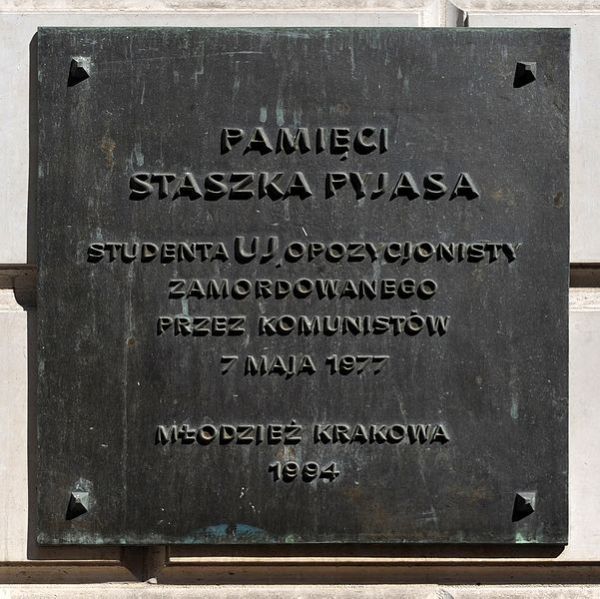The Historical Museum of the City of Kraków, Poland has a permanent exhibition titled "The People of Kraków in the Times of Terror."
The exhibit rightfully addresses both Nazi and Stalinist terror. But surprisingly the exhibit stops abruptly at 1956.
Sure the "Polish October" (aka "Gomułka's thaw") occurred in 1956 with some liberal policies introduced.
However, these changes still fell far short of Western standards and Poland under the PRL regime was never considered a free country.
Does anyone know why "The People of Kraków in the Times of Terror" exhibition doesn't end in 1989 as it should?
The 1956 cutoff year certainly gives a misleading impression that from 1957 to 1989 a truly utopian era was enjoyed by the denizens of Kraków and communism should therefore be considered "normal."
The exhibit rightfully addresses both Nazi and Stalinist terror. But surprisingly the exhibit stops abruptly at 1956.
Sure the "Polish October" (aka "Gomułka's thaw") occurred in 1956 with some liberal policies introduced.
However, these changes still fell far short of Western standards and Poland under the PRL regime was never considered a free country.
Does anyone know why "The People of Kraków in the Times of Terror" exhibition doesn't end in 1989 as it should?
The 1956 cutoff year certainly gives a misleading impression that from 1957 to 1989 a truly utopian era was enjoyed by the denizens of Kraków and communism should therefore be considered "normal."

